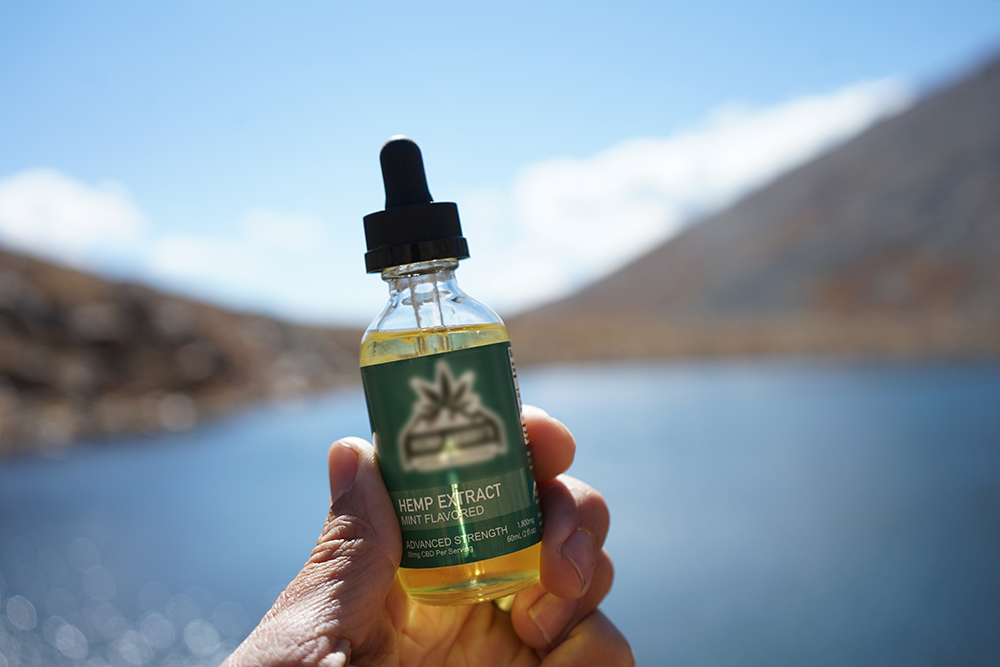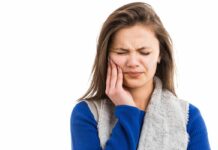Do you feel depressed and anxious during the cold winter months? You may be suffering from seasonal affective disorder. In this article, we’ll discuss what seasonal depression is and ways that medical cannabis can be used to help cope with this common mood disorder.
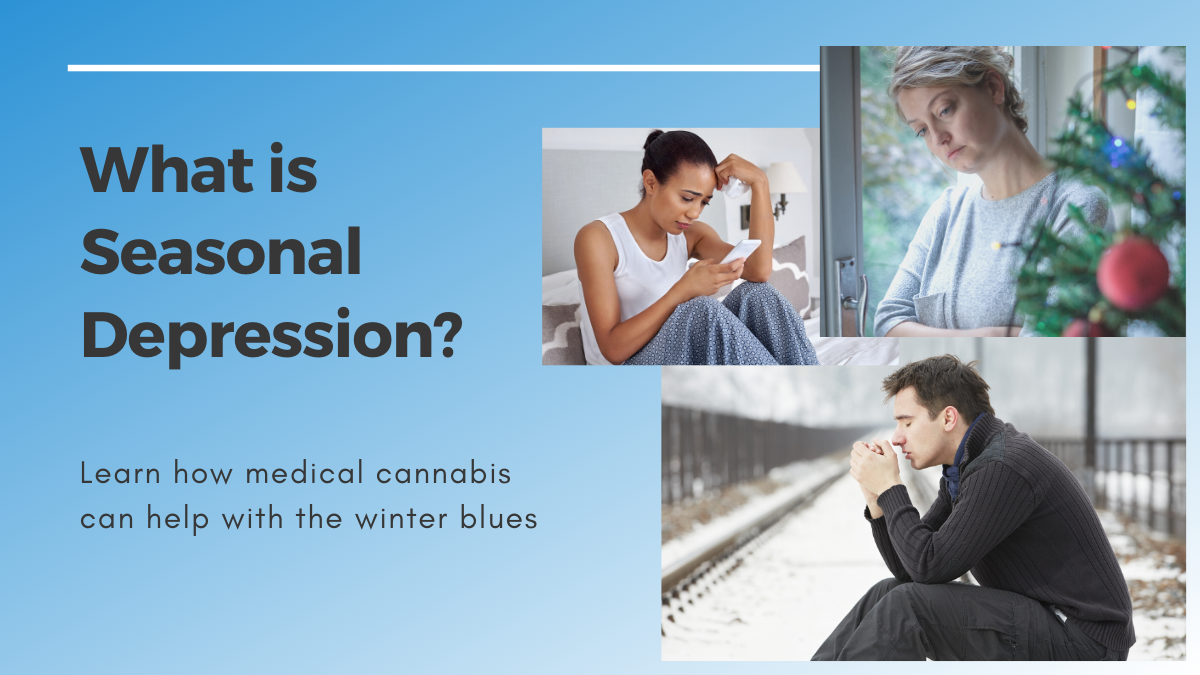
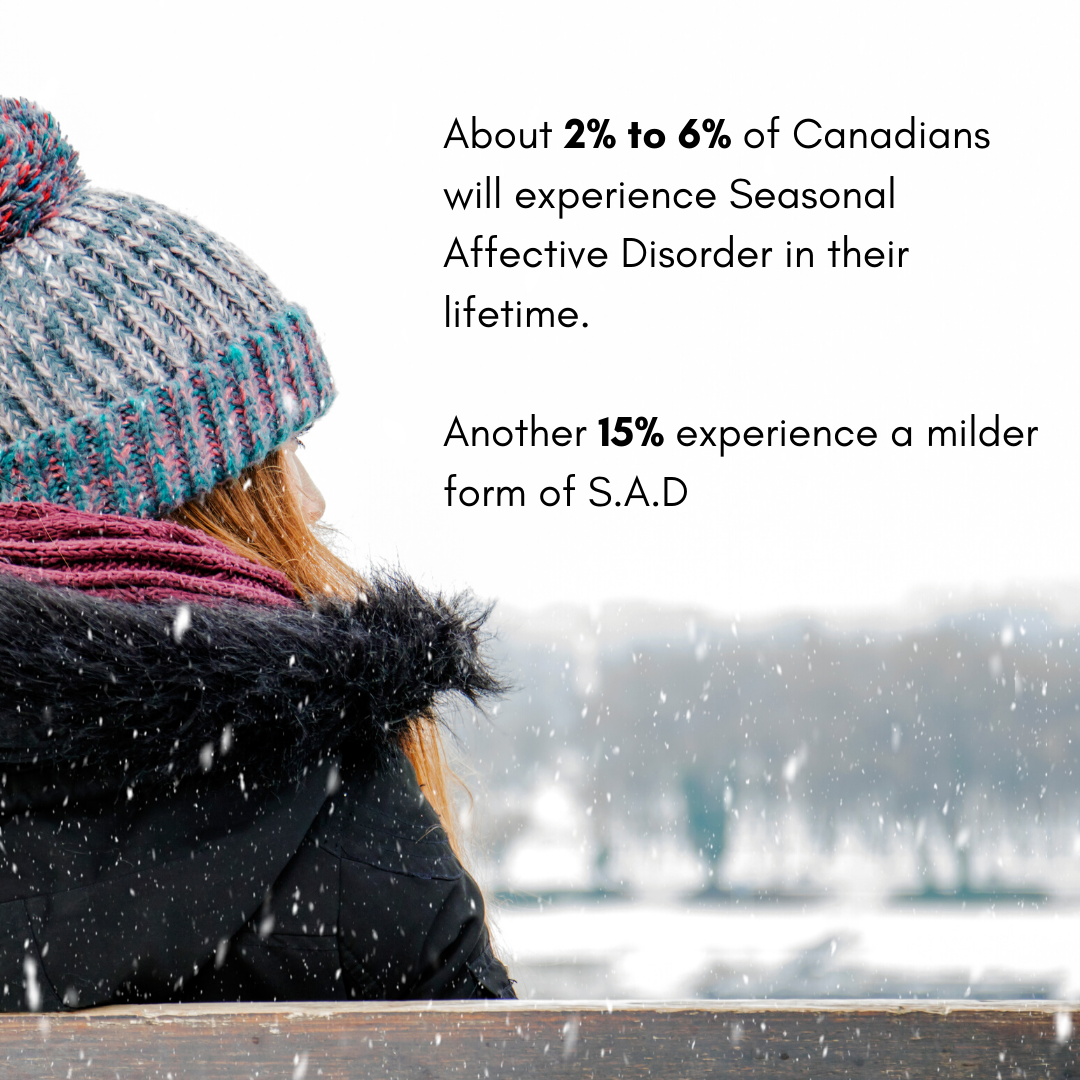 What is Seasonal Depression?
What is Seasonal Depression?
Seasonal depression, or clinically known as Seasonal Affective Disorder (SAD), is a mood disorder that is characterized by heightened feelings of depression or anxiety that flare up in response to seasonal changes.
The symptoms of seasonal affective disorder usually manifest at the beginning of fall and worsen through the wintertime.
Approximately 2% to 6% of Canadians will encounter moderate to severe seasonal depression in their lifetime, with 15% of Canadians experiencing a mild form of seasonal affective disorder.
While SAD is more likely to occur during the fall and winter months, it can also begin in the late spring and early summer months as well. This type of seasonal depression is known as summer depression.
 What is Holiday Depression?
What is Holiday Depression?
Holiday depression is a smaller piece in the larger picture that is seasonal depression. However, its causes have more to do with specific stresses of the holiday season itself, such as frequent family gatherings and shopping.
People with holiday depression report feeling acute feelings of stress and anxiety that stem from being overwhelmed with activities and responsibilities related to the holiday hustle.
Causes of Holiday Depression can include:
- Worrying about finances
- Feeling a lack of time
- Physical and mental exhaustion from social obligations
- Pressure from gift-giving, shopping, hosting parties, cooking and cleaning
This article will address the causes and symptoms of seasonal affective disorder while also outlining how medical cannabis can be an effective treatment for “the winter blues.”
 Are You Suffering From Seasonal Affective Disorder?
Are You Suffering From Seasonal Affective Disorder?
Although not everyone with S.A.D will experience the following symptoms, here are the most common symptoms.
- Depression
- Anxiety
- Decreased libido
- Difficulty focusing
- Fatigue
- Irritability
- Loss of interest in activities
- Oversleeping
- Reduced energy levels
- Social withdrawal
- Weight gain
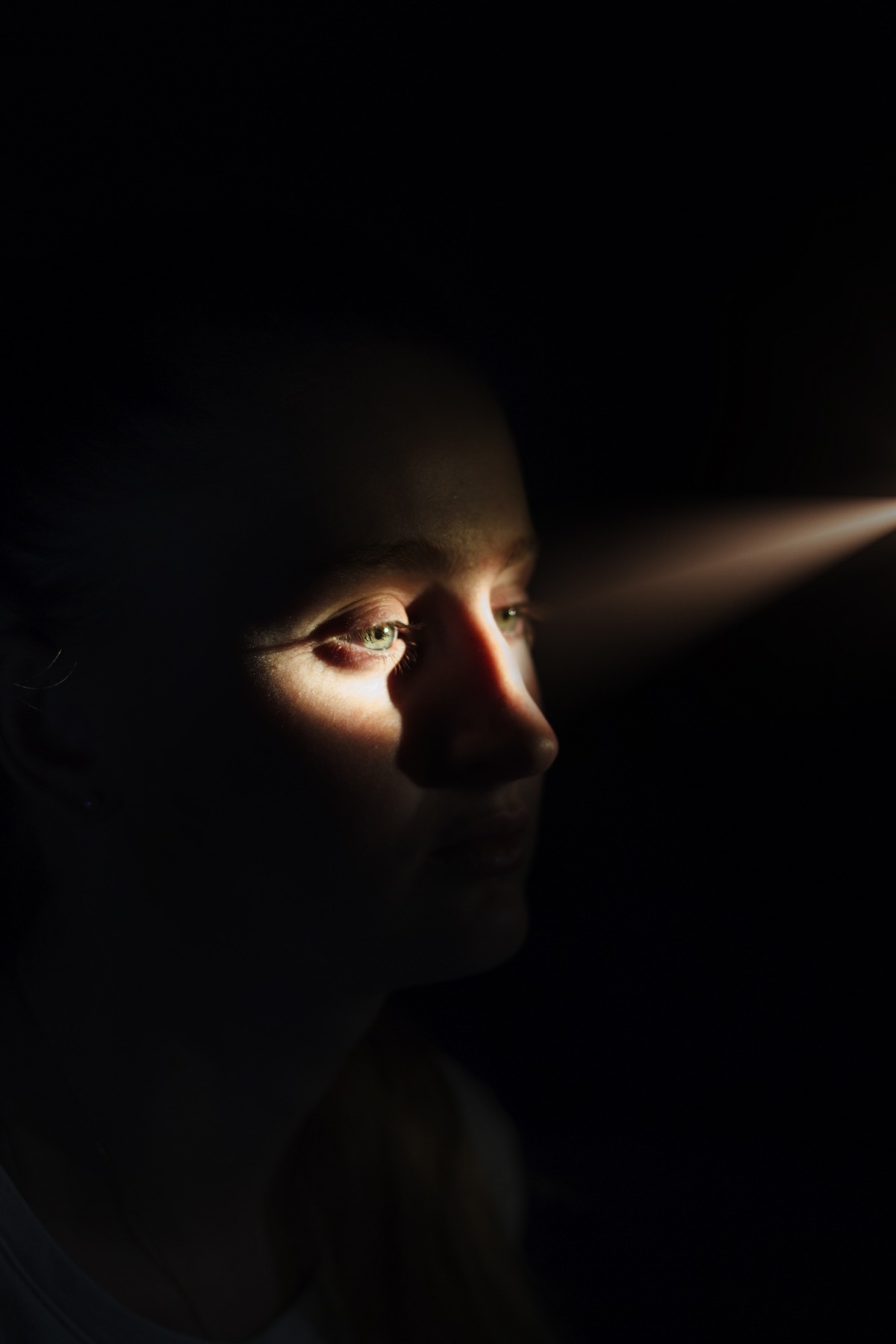 What Causes Seasonal Affective Disorder?
What Causes Seasonal Affective Disorder?
Seasonal affective disorder is more commonly experienced by people who live farther from the equator where sunlight becomes more scarce as the winter season draws closer.
It’s believed that seasonal affective disorder is linked to several causes such as:
- Vitamin D deficiency
- Low serotonin levels
- A disrupted internal body clock caused by shortening daylight hours
During the wintertime, the days are shorter, which means we receive less sunlight exposure, which, in turn, causes vitamin D deficiency.
Why Getting Enough Sunlight is So Important
When we are deprived of sunlight, some of us begin to experience feelings of depression and listlessness.
Exposure to natural sunlight provides us with much-needed vitamin D. When your skin is exposed to the sun, the sun’s ultraviolet rays penetrate the cholesterol in your skin cells and trigger a chemical reaction that provides the energy to manufacture vitamin D.
To meet our daily vitamin D requirement from the sun, we need around 6 minutes of sun exposure during the summer and 15 minutes during the winter. However, on overcast and cloudy winter days, it can be challenging to get our daily quota of sunlight.
According to Statistics Canada, 32% of Canadians are considered to be vitamin D deficient. That translates roughly to 11 million Canadians.
 Vitamin D deficiency is linked to:
Vitamin D deficiency is linked to:
- Anxiety
- Depression
- Brittle bones
- Changes in mood
- Fatigue
- Getting sick often
- Hair loss
- Muscle weakness
- Osteoporosis
 Reduced Serotonin Levels During Winter
Reduced Serotonin Levels During Winter
Serotonin is a neurotransmitter in our brain that plays a vital role in regulating numerous functions from appetite, sleep, memory, sexual desire and mood. Depression has been inextricably linked to low serotonin levels.
Dr. Brenda McMahon and her team of researchers from the University of Copenhagen in Denmark discovered that long, dark winter nights cause low serotonin levels in individuals with seasonal affective disorder.
Combine this with losing an additional hour from daylight savings time, and one can see how reduced sunlight exposure begins to affect our mood.
How Winter Can Disrupt Our Internal Body Clock
A distinct lack of sunlight can potentially cause significant disruptions in our circadian rhythm or our body’s internal biological clock.
The way it works is like this: shorter winter days cause our body to over-produce melatonin, which is a hormone that regulates our sleep-wake cycles. The more melatonin that is produced, the more tired we become. This abundance of melatonin directly results in us feeling more sluggish and tired during the shorter days of winter.
This ripple effect on our sleep-wake cycles can have direct consequences on our mood.
How Medical Cannabis Can Help With Seasonal Affective Disorder
Our brain’s neurotransmitters, dopamine and serotonin, play an integral part in regulating our mood and how happy we feel.
As discussed above, reduced levels of dopamine and serotonin are directly linked to depression and anxiety.
The good news here is that one of the main active compounds in cannabis, CBD, has been found to boost serotonin and dopamine levels by interacting with our body’s endocannabinoid system.
CBD May Help Alleviate Anxiety and Depression
A 2010 study performed by Jose Alexandre S. Crippa found that patients with generalized social anxiety disorder reported significant relief after being administered 400mg oral doses of CBD.
As for managing depression, a 2014 study headed by the Institute of Psychiatry from the University of Rio de Janeiro reported that CBD also possesses antidepressant qualities.
To combat seasonal affective disorder, we recommend choosing strains and products that are high in CBD content. We strongly suggest that patients avoid products containing moderate to high amounts of THC, as the psychoactive compound can trigger and exacerbate existing feelings of depression and anxiety.
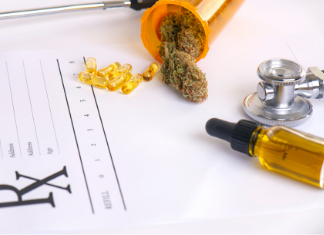 Which Medical Cannabis Works Best for Seasonal Affective Disorder?
Which Medical Cannabis Works Best for Seasonal Affective Disorder?
In short, the best products to combat seasonal affective disorder are products that are high in CBD.
It’s important to note that CBD, one of the active compounds in cannabis, will not cause any intoxicating or psychoactive effects.
For prolonged relief, we recommend ingesting CBD oil or CBD capsules. These oral products will exert anti-anxiety and anti-depressant properties over 6 to 12 hours. Patients should expect to feel the effects within 30 to 90 minutes.
For instant relief, we recommend vaporizing CBD-dominant dried flower. The onset of effects will occur within minutes.
 Other Ways of Dealing with Seasonal Affective Disorder
Other Ways of Dealing with Seasonal Affective Disorder
There are also additional ways of coping with S.A.D.
- Exercise: Physical activity is a great and effective way to boost your natural levels of endorphins. The amount of exercise needed to feel invigorated can just involve a brisk 10-minute jog.
- Light therapy: Exposure to artificial lights can also help. You can conduct your own light therapy by turning on lamps and overhead lights at home or purchasing specific light therapy lamps that utilize broad-spectrum lighting.
- Vitamin D supplements: Supplements are another useful way of making sure our vitamin D stores are high. Clinical studies have indicated that vitamin D was associated with higher relief in depression in patients with SAD.
